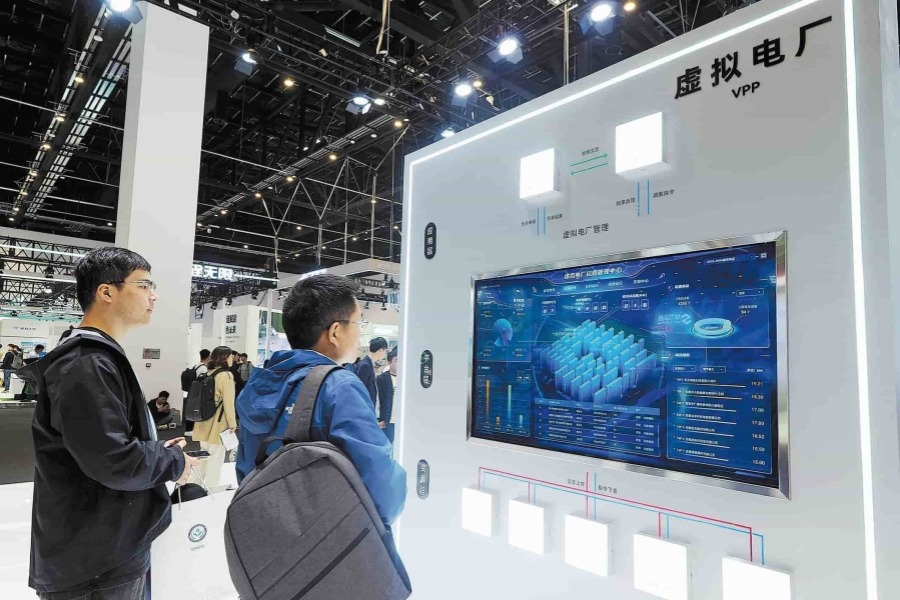Shanghai solidifying sci-tech hub bona fides
New measures in place to support players engaged in innovation


Shanghai's stepped-up efforts to aid fundamental scientific research are crucial to support the development of pioneering technologies and companies specializing in emerging industries, which is conducive to the city's high-quality economic growth, said officials and company executives.
A set of nine new measures to better support companies' fundamental research took effect in Shanghai on Aug 1, aiming to strengthen enterprises' role in such research by providing them more subsidies, favorable tax policies and more access to scientific facilities.
For companies directing at least 100 million yuan ($13.9 million) to fundamental research on a yearly basis, a one-time 10 million yuan fiscal subsidy will be provided. Company expenditures used to support basic research conducted in nonprofit research institutions, universities and government-run natural science foundations can be 100 percent deductible before tax.
Companies using the city's scientific equipment and services may be entitled to 50 percent subsidies based on actual payments, with an annual limit of 1 million yuan for each company, according to the new measures.
Qu Wei, deputy head of the Shanghai municipal commission of science and technology, said the new measures aim to direct more resources to companies and grant them more decision-making power regarding basic research.
The government also wishes to arm companies with the right research methods. In this way, companies can develop long-term objectives and dedication to technological innovation, which will help to consolidate the foundation of new drivers of high-quality economic development, Qu said.
The municipal government underlined in the latest measures that the city's "explorer plan" — which was launched in 2021 to address the most pressing industry challenges by seeking more academic backing — should be further supported and include more companies from the emerging sectors of integrated circuits, biomedicine and artificial intelligence.
Therefore, Shanghai municipal commission of science and technology on Monday issued 24 detailed management measures for the "explorer plan".
Over the past four years, a total of 22 companies have been included in the plan, covering State-owned enterprises, private companies and foreign firms.
Shanghai Nuclear Engineering Research and Design Institute Co Ltd was one of the first to be part of the plan. According to the company's chairman, Yan Yan, the firm has built a national-level lab for key nuclear power materials by working with a number of Shanghai-based research institutes. This cooperation, which is part of the "explorer plan", helps to deeply integrate basic research and meet engineering demand. The most cutting-edge scientific problems can thus be solved efficiently, helping to improve China's original innovation regarding nuclear power, he said.
Shen Yichen, founder and CEO of Shanghai-based optoelectronic hybrid computing service provider Lightelligence, said universities are willing to take part in research projects which are not quite mature at the moment. The company is striving to come up with technologies which are required in products that the company may release in five years. This is also a major benefit of the "explorer plan", he said.
Shanghai Electric Group Co Ltd Central Academe has managed to attract 20 partners over the past two years by taking part in the "explorer plan". One problem, which they thought might be resolved by surrounding universities' engineering departments, was eventually tackled by a university chemistry department. Such interdisciplinary cooperation is another major benefit of the plan, according to Central Academe's assistant to the dean, Ru Bin.
On July 30, Qiyuan Public Welfare Foundation was launched in Shanghai. Founded by 16 local State-owned enterprises, the foundation is the first of its kind initiated by SOEs which aims to support basic research.
Apart from helping create technological breakthroughs in IC, biomedicine and AI — three pioneering sectors in Shanghai — the foundation will also support research in frontier sectors such as quantum technology, controllable nuclear fusion, brain science, as well as deep sea and deep earth exploration.
Data from the municipal government showed that 11 percent of Shanghai's research spending was devoted to basic research, higher than the national level of 6.9 percent.




































